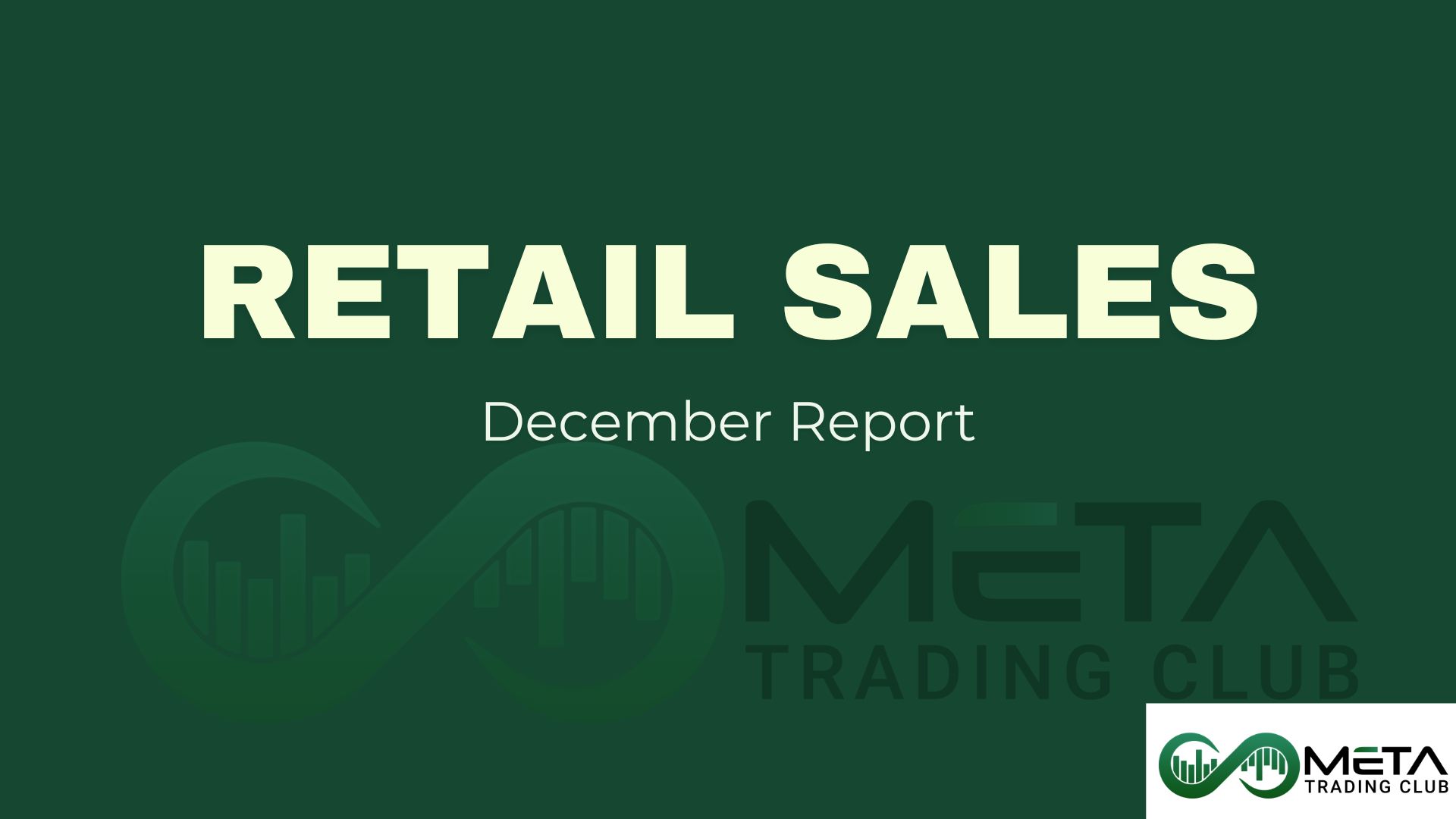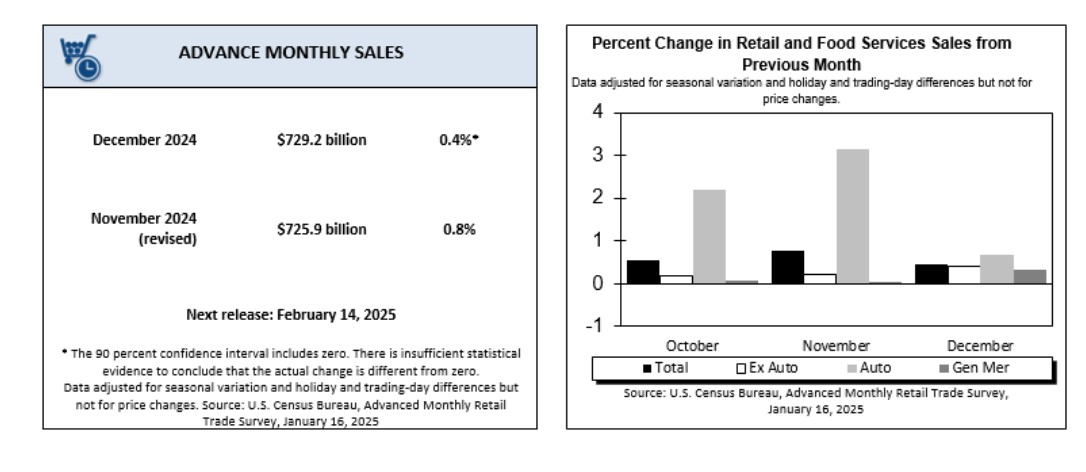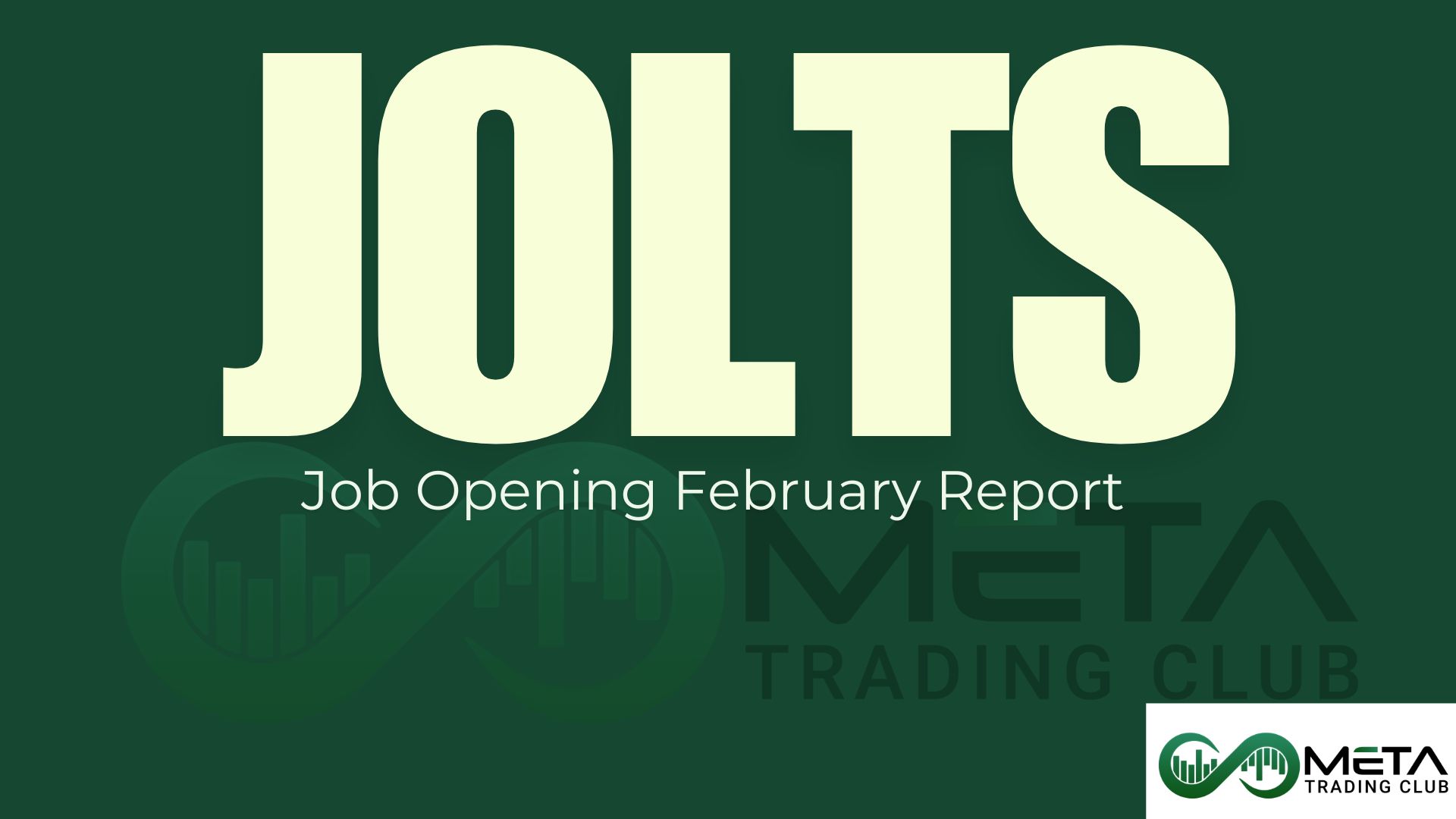Retail sales measure the total value of goods sold in retail stores, covering various products like clothes, electronics, and food. It’s reported monthly and provides insight into consumer spending. Higher retail sales suggest a strong economy as people are spending more money. While lower sales can signal economic slowdowns as people might be spending less.
This indicator is crucial for understanding the health of the economy since consumer spending makes up a large part of it. Economists and policymakers closely monitor retail sales to gauge economic performance and make informed decisions. Retailers also use this data to plan their strategies and meet consumer demand effectively.
December Retail Sales
The U.S. Census Bureau released its advance estimates for retail and food services sales in December 2024. These estimates, which account for seasonal variation and holiday trading-day differences but not price changes, showed that sales reached $729.2 billion.
This represented a 0.4% increase from the previous month and a 3.9% increase from December 2023. Overall, total sales for 2024 rose by 3% compared to 2023. Sales for the period from October to December 2024 increased by 3.7% compared to the same period in the previous year. Additionally, the percentage change from October to November 2024 was revised from 0.7% to 0.8%.
In the retail trade sector, sales increased by 0.6% from November 2024 and were up 4.2% compared to December 2023. Significant growth was observed in specific categories, with motor vehicle and parts dealers experiencing an 8.4% increase from the previous year, and nonstore retailers seeing a 6.0% rise compared to December 2023.
These figures indicate steady growth in the retail and food services sectors, reflecting consumer spending trends and economic resilience during the holiday season.
Source: Census.gov
Impacts on the market
The December 2024 retail sales report, showing a 0.4% sales increase, had a mixed impact on the S&P 500. Despite indicating ongoing consumer spending resilience, the report raised concerns about inflation and interest rates. Consequently, the S&P 500 experienced some volatility as investors reacted to potential future Federal Reserve rate cuts.














